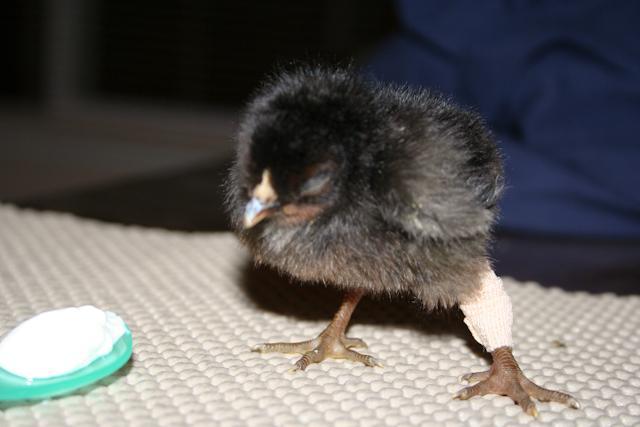If it was cocci, they would die very quickly. They would not have these leg issues either. They would seem wobbly though from weakness due to internal bleeding and starvation.
I have my fingers crossed that it's something nutritional and not contagious.
Medicated feed can lead to thiamine deficiency which can lead to these symptoms.
http://www.merckmanuals.com/vet/pou..._poultry/vitamin_deficiencies_in_poultry.html
THIAMINE DEFICIENCY
Polyneuritis in birds represents the later stages of a thiamine deficiency, probably caused by buildup of the intermediates of carbohydrate metabolism. Because the brain's immediate source of energy results from the degradation of glucose, it is dependent on biochemical reactions involving thiamine. In the initial stages of deficiency, lethargy and head tremors may be noted. A marked decrease in appetite is seen in birds fed a thiamine-deficient diet. Poultry are also susceptible to neuromuscular problems, resulting in impaired digestion, general weakness, star-gazing, and frequent convulsions.
Polyneuritis may be seen in mature birds ~3 wk after they are fed a thiamine-deficient diet. As the deficiency progresses, birds may sit on flexed legs and draw back their heads in a star-gazing position. Retraction of the head is due to paralysis of the anterior neck muscles. Soon after this stage, chickens lose the ability to stand or sit upright and topple to the floor, where they may lie with heads still retracted. Thiamine deficiency may also lead to a decrease in body temperature and respiratory rate. Testicular degeneration may be noted, and the heart may show slight atrophy. Birds consuming a thiamine-deficient diet soon show severe anorexia. They lose all interest in feed and will not resume eating unless given thiamine. If a severe deficiency has developed, thiamine must be force-fed or injected to induce the chickens to resume eating.
Thiamine deficiency is most common when poorly processed fish meals are used, because they contain thiaminase enzyme. In such situations, adding extra thiamine may be ineffective. In regular diets, deficiency is prevented by supplements of thiamine at 4 mg/kg.
ETA:
How Medicated Chick Starter Works… and Why You Shouldn’t Use It:
The popularity of medicated chick starter feeds grew as a result of the meat and egg industries. When companies are raising literally thousands of birds in cages housed in large warehouse-style buildings, there is
not a lot of “Natural” anything going into the raising of the chickens. The environment alone can cause issues and illnesses in the chickens, and these big companies must “protect their investment.” Thus, they make a preemptive strike, dosing the chicks with antibiotics and amprollium – a drug that blocks thiamine uptake, thereby preventing the carbohydrate synthesis necessary for cocci to grow.
Medicated chick starter feeds almost always contain amprollium, and sometimes contain other antibiotics. If a person is trying to raise organic chickens – or at least utilize
natural chicken keeping methods, these drugs and antibiotics are fully contrary to that goal.
Just like using chemical wormers can create chemical-resistant “super worms,” using unnecessary antibiotics can play a role in the creation of antibiotic-resistant infections. (Not something most of us desire in a flock of chickens.)
And there is another large factor to consider with amprollium. This drug’s main purpose is to block thiamine uptake. All living things
need thiamine – which is also known as vitamin B1 - in order to grow and be healthy.
I do not use medicated feed personally.



